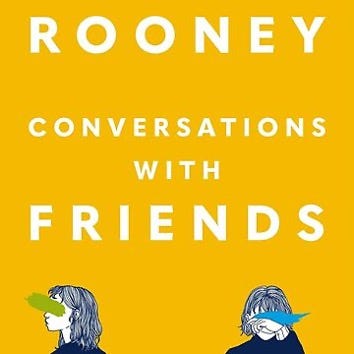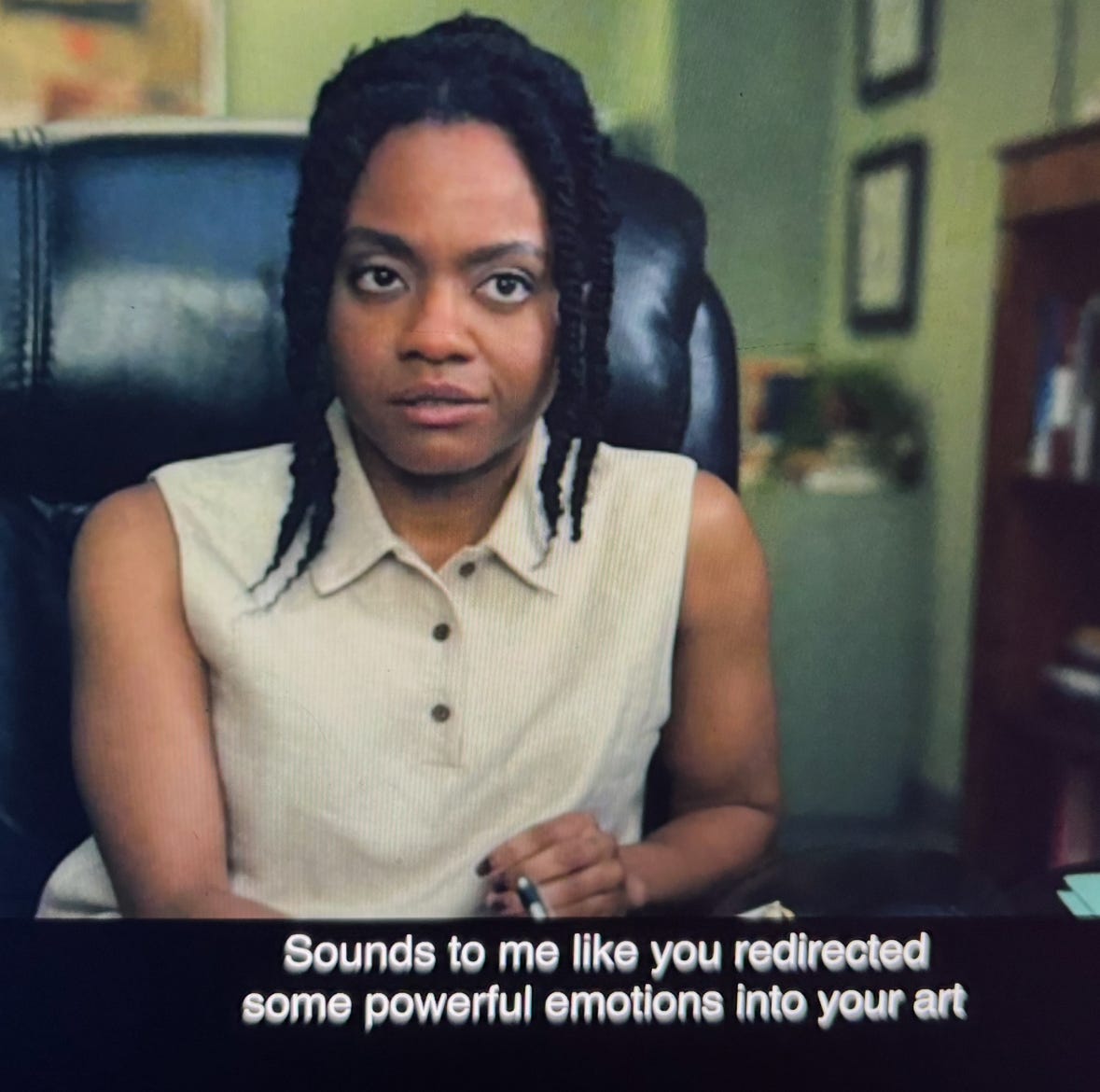Bad news isn’t always delivered in a way that makes it obvious that trouble has arrived. But an editor is required to think in years and months—almost no book goes from the editing stage to published and on sale in under a year—rather than in weeks or days. Editors are seers who look into the future, amateur psychologists who read minds, and, as we touched on last week (jokingly, lovingly), sometimes hostage negotiators. You learn to trust your instincts to sense the way the winds shift. And, also, to listen to other editors when they complain.
Editors love to complain. It is a necessity that we complain with each other. Not only in the time-honored way of coworkers everywhere trying to get through their days, but because complaining contains essential trade secrets. Often each writer and publishing experience is so wildly different from one another that if editors didn’t talk and swap war stories, it might take decades longer to learn the hard lessons. What follows are some words of warning for other editors and writers, but, really, they apply to all walks of life, just adjust for book-specific references.
1. I’ve finished my edits! (In a week)
Nothing is scarier to an editor than when the time spent editing does not remotely match the time spent revising. Sure, if you catch six typos in the final draft, then you expect the writer could look and review in less than a day. But when it takes months to put together notes and the manuscript is turned around by a writer in a week, it sends shivers along the editor’s pen hand before they are even able to double click on the Word document.
Writing and especially re-writing is a job that should be done well, not quickly. A writer turning around a quick edit usually means one of two things: A) the writer has accepted none of the changes or B) the writer has accepted all of the changes. Either option is bad news and evidence of the same malady: non-engagement. A good editor shouldn’t want the former for obvious reasons, but they shouldn’t want the latter either. The best writers go through the exercise of sitting with editorial notes, considering them and thinking through what they do and do not want to change. Even if the writer likes what the editor has suggested, they’ll give it a few more beats and see if they can’t come up with an even better alternative. The best revisers in my experience don’t ask what the answer is first, but consider why the editor asked the question to begin with.
This same principle applies in many areas of life. If a builder comes and puts a new roof on your house in a day, you might want to hire someone else to double check their work before the next rainstorm comes. There’s reason to say “uh oh” when a student comes back down the hall in minutes with an assignment that should have taken them all day. The least a writer can do is show the common decency of pretending to mull it over for a few weeks, before rejecting all the changes and sending it back as a clean, untraceable document.
2. My [insert family member relation] is a graphic designer …
Unless your relative is Chip Kidd, please do not offer a helping hand in the cover design of your book. The cover design process is high stakes enough without introducing another person who may have a design knowledge of varying levels and who may know nothing about cover design specifically. While giving designers inspiration is great, trying to make a cover yourself derails the whole process. Imagine how creatively deflating it is for the designer who knows their author already has their heart and mind set on something else? It would be the same as an editor telling a novelist what to write, chapter-by-chapter as they work on the first draft.
The-[fill in the blank family member]-is rule applies to many situations where you might hire a professional. You wouldn’t hire a property lawyer and then second guess them at every turn because your criminal defense cousin has contradictory opinions. Or at least you shouldn’t do this, for what I hope are obvious reasons. Treat your editor and by proxy their cover designers like lawyers—feel free to pretend they bill by the hour as well.
3. My friend told me…
How does the saying go? A little bit of knowledge is a dangerous thing. Or something like that. Writers that start with a preexisting relationship to the publishing business can be the most difficult. This goes along with the old axiom that “doctors make the worst patients.”
The problem can be akin to a patient WebMD’ing their own disease but with the particular added element in book publishing of a whisper-down-the-lane effect. Publishing is a business of one-off exceptions. Just because one writer or editor or literary agent or publisher had a good experience doing something one way doesn’t mean it will work for anyone else. Ditto for a bad experience or publishing disaster.
In gambling they call this “results oriented thinking”—looking at the outcome rather than the odds. In book publishing, where the information is opaque or indecipherable or idiosyncratic, it’s no surprise that these one-off experiences get rehashed to fresh-faced writers as certainties. Sometimes “my friend told me that” or “told me to ask” results in a good question that should be asked of an editor (or literary agent), other times it’s a wild goose chase or a small thing that doesn’t really matter but now requires an hour to explain that could best be used to do something else. Editors can be just as susceptible to this thinking: my author wore blue in their author photo and their book turned out to be a bestseller. Or, “Hey novelist, I heard from a friend that TikTok ASMR readings are really pushing books these days, maybe you should try it.”
4. 1000 justifications
PSA to writers: editors do not generally operate under the assumption that a line, a paragraph, a chapter, or a character was ill-considered. A writer’s explanation is sometimes required, especially if an editor asks for it, i.e. “is this character supposed to be angry here?”. But editorial notes are not an invitation for justifications. Even if they are expressly asking for an intention, I’d say 90% of the time an editor’s questions are pointing out what isn’t working for them, not asking for an explanation. It might rate among the top most frustrating situations as an editor when a simple editorial question gets a three-page response for why the sentence was exactly as the author intended and 1000 justifications for how it is therefore perfect without change.
The first gold nugget of advice I ever heard upon entering publishing was from an editor 20+ years into the business: it’s not the bad or great writers that will fight you most fiercely on edits, it’s the mediocre ones. The point being that the two other groups will accept help while the ones who dig in are almost always pretty talented but have bought into the idea of being misunderstood rather than fallible. In any arena where feedback is given, when the person just starts justifying in every direction, you can bet that there’s not going to be much change or progress made that day.
5. Reaching out only when there’s a problem
This goes both and every which way. It can apply to personal and professional relationships alike. Writers and non-writers. Nothing is worse than when someone is completely silent for days, weeks, or months, but then only seems to haunt your email, speed dial, or ping you with a text when they have an issue. You shouldn’t reach out to your local editor only when you have a problem.
Unlike lawyers, doctors, or fixers (the George Clooney kind, not the comma kind), an editor is not a profession that you come to when you’re in need of an urgent and dire patch up job. At the risk of this newsletter becoming overloaded with job metaphors, it’s more of an architect kind of profession, which perhaps explains their shared kinship as the choice industries in romantic comedies. Editing is a slow and steady type of work where it’s best if the writer and editor share a vision (to trot out a choice publishing buzzword). Plus, if the proverbial pipe bursts, it might be the editor’s fault but there’s not much they can do to fix it in immediate terms.
The point is whether it is home renovations, or a manuscript, the best stuff happens when you share the good and the bad, working together—as long as the bad doesn’t include fishing your edits too quickly, a million justifications, and all friends and family being invited to participate.




Be right back, compiling a 3-page essay on why these things don’t apply to me.
Another great post that makes the industry slightly less opaque, indecipherable and idiosyncratic.